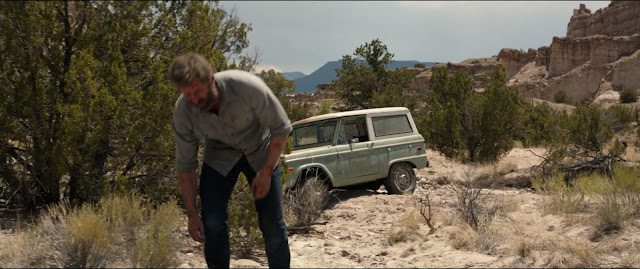Story Point of View - Part 1: Logan
Back in July Matt Jones tweeted about the director's commentary on the Logan BluRay. In it director James Mangold talks about story point of view. This is something I think doesn't get talked about enough, when discussing storyboarding. I believe that the problem is that as a subject it can be a bit hard to define. But, as Matt says in his tweet (see below) it is one of the most important aspects of storytelling. Because it is something I have been struggling with myself and because so far I haven't really found a solid explanation, I want to do a series of posts on the subject as I see it.
This first post is based on Matt's tweet and James Mangold's explanation in his director's commentary. If you have the BuRay, this part of the commentary is around 1h:44 minutes in. I've written a transcript of this part of the commentary and I have included some stills from the scenes he's talking about as well. Transcript taken from James Mangold's Logan commentary:
"For people interested in writing or directing movies, I think one of the most important things that people like myself have to think about a lot, but is not often discussed, even in film schools, I find, is point of view. And what I mean by that is that we all know when we read a novel, there’s a point of view, “Who is the narrator? Is the narrator omniscient? Are we hearing the voice of one of the characters describing a memory, or something they’re living through in the present tense?”
But in movies, there is also point of view. Meaning, for instance, right now, I’m in Hugh Jackman’s point of view, every shot, I’m close on him as he wakes up. I see what he sees, the sun shining through the windshield. I stumble through the dirt and the grass with him here. I see Laura from a distance: his distance. Camera is his distance away from her. I’m close up on him, I see what he sees on the hillside, these children. And then when he collapses, the scene ends.
The point I’m making with this is that, a lot of times what I tend to find is unfocused about movies or falling flat, is sometimes, the fact that the movie just seems to not attach itself to any one character, and that can cause story problems, (...) meaning you just don’t know who the story belongs to. But it also makes the movie visually less interesting because when you’re following a character’s point of view, it suddenly helps define how you’re gonna shoot it and see the world, and [it] gives you limits and parameters to work inside. How you’re gonna visualize, how they feel about the world, what they see and how they see it, how he takes in these children for the first time, their faces all looking down at him. Everything speaks to me through the idea that I’m doing this sequence from his point of view.
When you don’t do that, where the camera goes and how you stage the scene, suddenly becomes a lot more generic. You just start shooting people acting from handsome directions, but you don’t have a sense of an emotional point of view for the scene."
































